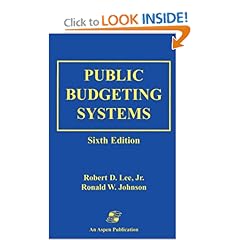
Every American knows that George Washington started out as a Colonial surveyor. Few are aware that Washington's image on the almighty American dollar is framed by an Egyptian cartouche: a magic circle of rope--woven from Amazon grasses--that was folded, and tied, at the end. Royal cartouches guarded the Pharaoh's birth name from harm; Washington's name is printed directly above the cartouche knot on America's unit of currency.
Untangling the US Deficit is a densely packed survey of literature and theories that document and explain America's growing deficit in international trade. Richard Iley's book is written for graduate students and economists, but the text and theories are accessible to general readers.
The components of the trade deficit are well-known to American consumers: rising oil prices, and tidal waves of imports from countries that have adopted export-led growth strategies: Japan, Southeast Asia, and China.
By definition, a trade deficit must be matched by an inflow of borrowed funds from abroad. The opposing sides of the trade-deficit equations have given birth to a matrix of theories that view America's trade deficit from both domestic and foreign perspectives.
Of particular interest to this general reader were two theories that examine sources of deficit financing.
The twin-deficit theory posits that America's foreign-trade deficit is being financed by the federal government's budget deficit, through the sale of US treasury bonds to the central banks of foreign countries with trade surpluses. By 2006, foreigners owned 44% ($2 trillion) of the federal debt.
The household-sector theory adds America's growing household debt to the debt-financing equation. In 2005, the household-sector deficit exceeded the fiscal deficit. American homes are being used as personal ATM machines--households are financing increased spending by borrowing against the rising value of their homes.
The web of debt theories surveyed in Iley's book enable informed debates over the sustainability--and policy implications--of the trade deficit. Ben Bernanke, chairman of America's Federal Reserve Board of Governors, argues that Americans are consuming more than they produce only to accommodate a global savings glut. Widely praised former Fed chairman Alan Greenspan argues trade deficits are of no particular economic significance, and the accumulation of debt has few implications beyond the solvency of the debtors.
Since 1991, the US trade deficit has grown from near zero, to a forecast 8-12% of gross domestic product in 2010. Over the past two decades, the US has become the world's largest debtor country. Economist Paul Samuelson characterizes America's ever-growing empire of debt as the product of a "me-now-consume" culture.
Two hundred years ago, Colonial Americans claimed ownership of the very lands Washington had surveyed for the British. One decade into the third millennium, a new economic order may lie on the horizon.
In this reader's view, oil prices subsidized by the federal deficit enable American consumers to drive gas-guzzling cars to company stores, where they fill shopping carts with cheap imports by pledging future income--including their homes--to foreign governments, whose people long remember the inequities of colonial rule.
If America's Gordian knot of debt should come unraveled, owners of Richard Iley's book will be the first to know what happened, and why policy-making officials did nothing to prevent it.
Click Here to see more reviews about:
Untangling the US Deficit: Evaluating Causes, Cures and Global Imbalances [ILLUSTRATED] (Hardcover)
 Contemporary Iran is a collection of documented and highly detailed research papers by authors of the first quality. Great Reference! If the information you seek is not contained in the volume, the Bibliographies will take the reader there. All black and white keeps the cost down, but the charts are easy to understand. Permits the reader to unravel much of the current mystery of Iran and to develop a third order of knowing the Land of the Persians.
Contemporary Iran is a collection of documented and highly detailed research papers by authors of the first quality. Great Reference! If the information you seek is not contained in the volume, the Bibliographies will take the reader there. All black and white keeps the cost down, but the charts are easy to understand. Permits the reader to unravel much of the current mystery of Iran and to develop a third order of knowing the Land of the Persians.

